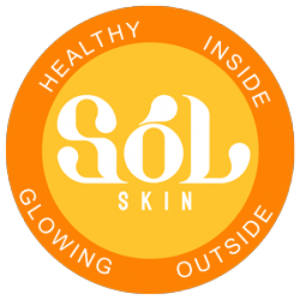ON 24-APR-2019
Free Radicals
You might have heard us use the phrase ‘free radicals’ very often, because most of our supplements help your body fight free radicals.
What Are Free Radicals?
In summary, free radicals are factors that our body is exposed to on a daily basis, negatively impacting our body. These factors include stress, pollution, UV Rays, X-rays, cigarette smoking and even normal metabolic processes of the human body!
The science behind it;
Everything including out body and its cells are made of atoms. Atoms are surrounded by electrons that orbit the atom in layers called shells. Each shell needs to be filled by a set number of electrons. When a shell is full; electrons begin filling the next shell.
If an atom has an outer shell that is not full, it may bond with another atom, using the electrons to complete its outer shell. These types of atoms are known as free radicals.
Atoms with a full outer shell are stable, but free radicals are unstable and in an effort to make up the number of electrons in their outer shell, they react quickly with other substances.
When oxygen molecules split into single atoms that have unpaired electrons, they become unstable free radicals that seek other atoms or molecules to bond to. If this continues to happen, it begins a process called oxidative stress.
Oxidative stress can damage the body’s cells, leading to a range of diseases and causes symptoms of aging, such as wrinkles.
Oxidative stress, arising as a result of an imbalance between free radical production and antioxidant defences, is associated with damage to a wide range of molecular species including lipids, proteins, and nucleic acids. It basically has a negative impact on every part of the body.
A role of oxidative stress has been linkedto many conditions, including anthersclerosis, inflammatory condition, certain cancers, and the process of aging. Oxidative stress is now thought to make a significant contribution to all inflammatory diseases, ischemic diseases (heart diseases, stroke, intestinal ischema), hemochromatosis, acquired immunodeficiency syndrome, emphysema, organ transplantation, gastric ulcers, hypertension and preeclampsia, neurological disorder (Alzheimer’s disease, Parkinson’s disease, muscular dystrophy), alcoholism, smoking-related diseases, and many others.An excess of oxidative stress can lead to the oxidation of lipids and proteins, which is associated with changes in their structure and functions.

The role of RA Supplements?
Antioxidant and Anti-inflammatory properties of our supplements help detoxify free radicals and reduce oxidative stress… in turn lowering the risk of various diseases as well as the symptoms that surface due to oxidative stress, like ageing.
